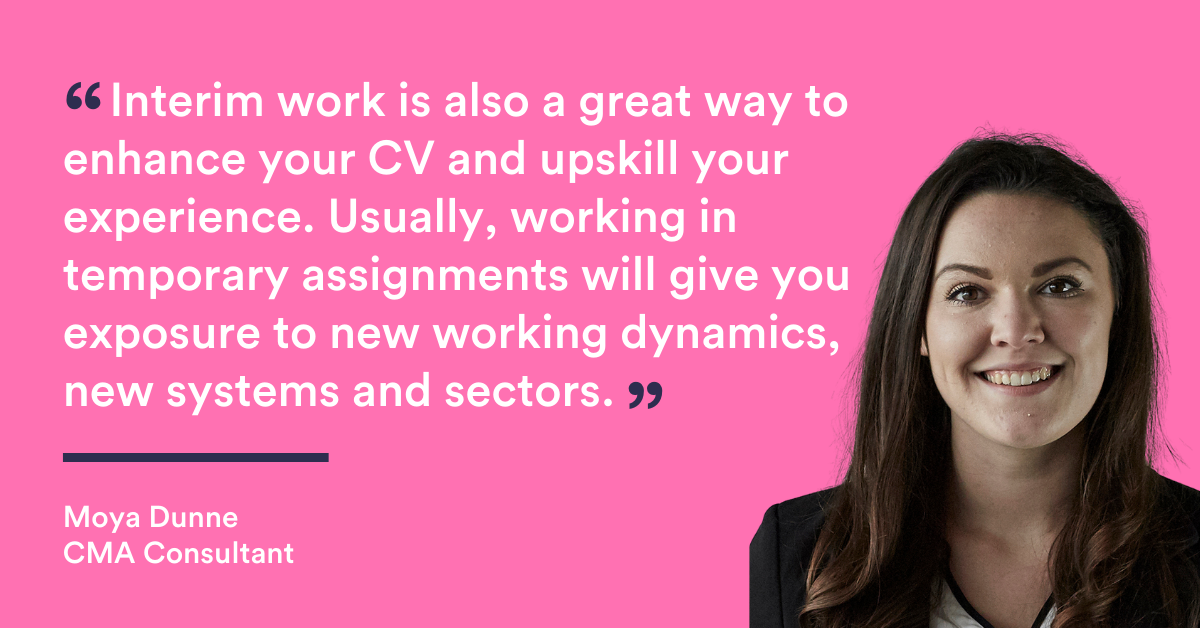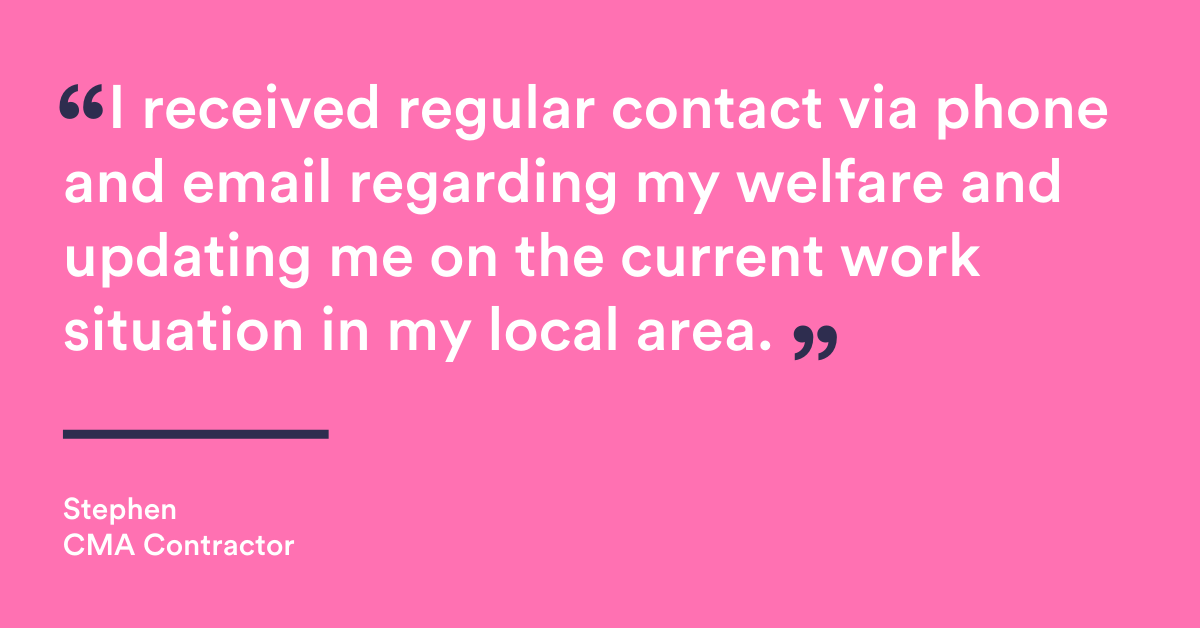The Benefits of Temporary Employment
We’ve previously covered the benefits for employers of hiring an interim workforce, now in this article we explore the advantages that temping brings for the contractor.
Have you previously considered contracting and been unsure? What put you off? Was it the fear of an unstable job or worry of how you would fit into a company for a short period? Temping for some people brings with it a stigma when it comes to working rights, notice and stability – the idea of not having a permanent contract can seem a bit daunting! It can help to know that in fact, interim workers have the same rights to equal treatment as permanent employees. And temporary doesn’t always mean short term.
Interim positions vary in length; from days, weeks, months, to even years. And there’s the possibility in some circumstances that the employer will be looking to keep the right contractor on as an employee. For those seeking a permanent position eventually it’s great to have that option. For many contractors though, this lack of permanent contract signals freedom and flexibility.
Temporary work offers many benefits for contractors; offering flexible working, a great work-life balance and the chance to gain valuable experience to benefit your career. CMA Divisional Manager Michelle Pena Stapleton says: “Temping has many benefits. It’s a great avenue to bridge any employment gaps on a CV, gain experience of diverse industry sectors and learn new IT systems. Temping can also offer a ‘fast-track’ towards enhancing existing skills and gaining experience in new areas, thus strengthening and adding value to the CV. ”
Here at CMA we have a substantial bank of contractors on our books, some of whom we have worked with for large portions of their career. These contractors return to us time and again when they are available for new opportunities.
We spoke to some of our contractors to find out why they love being a ‘temp’ and what it is about temping that works so well for them.
Paul Healey – Accounts Payable
Paul has been contracting for about six years, with a permanent position sandwiched between his first interim role and his current assignment. Most of his interim assignments started either on a week-to-week basis – or as a short ‘fixed’ period with a view to extending the offer if both parties were satisfied. He says: “I have been in my current temporary assignment since April 2018 and can honestly say it’s been a period and role that I continue to enjoy.”
When it comes to work-life balance Paul finds that the structure of temping really enables this: “I have always found employers very open to flexi hours, to allow me to chop and change hours at times when it is a requirement. I have always worked on trust that any lost hours are made up.”
When it comes to the stigma of ‘temping’ Paul is quick to dispel this: “Personally getting exposure to different companies whose products and structure vary enormously has opened my eyes in a way to how companies do business.”
CMA Consultant Moya Dunne explains: “Interim work is also a great way to enhance your CV and upskill your experience. Usually, working in temporary assignments will give you exposure to new working dynamics, new systems and sectors. This will ultimately support your permanent search.”
Paul has really reaped the long-term benefits of this exposure he says, “it gives you confidence in switching roles and employers, as it becomes easier to update quickly to a change in environment.”
Louise Rigby – HR Director
Louise built her career within mainly a manufacturing environment and in 2017 decided to take a year’s sabbatical to travel. After a fantastic experience visiting 22 countries and travelling 35,000 nautical miles she returned ready for her next challenge. Louise was looking for an opportunity where she could share her previous work and life experiences to support an organisation’s vision and values. This is when she started her interim career.
Interim work allows Louise to work when she wants to, giving her the opportunity to travel as well: “But most of all, I am there to support a business when they most need it and most value the support.”
Louise is looking to reduce her work commitments and enjoy the opportunity of being able to indulge in other activities and life-time ambitions. She says: “Interim work allows me to take on assignments giving them a 110%, but then be able to leave at the end of the task without feeling I am letting anyone down.”
CMA Consultant Moya Dunne explains: “Temporary assignments are great for candidates wanting flexibility in their role. If you have prior commitments throughout the year which is challenging around a permanent role, interim roles are a great way to pick up shorter assignments around your busy schedule.”
Stephen – Purchase Ledger
Stephen has been engaging in temporary work assignments for the past six years, the majority of which have been through CMA: “Unlike some other agencies I find CMA agents are incredibly supportive. As soon as I make myself available for work, they are always very quick to contact me with details of potential assignments available that I am suitable for and may be of interest to me, also providing me with on-going support through each assignment if required.”
Those debating the potential risk of leaving a permanent position and taking up temping may be worried about being out of work between contracts. In reality, working alongside a good consultancy will mean you can be in a much more solid position: “They [CMA] seem to have a very good relationship with many employers in the local area, which has meant that there has never been much delay in finding assignments” says Stephen.
“During the period of economic uncertainty caused by the COVID 19 pandemic I received regular contact via phone and email regarding my welfare and updating me on the current work situation in my local area.”
Like many of our contractors, Stephen finds the opportunity of flexible working a real plus: “I enjoy working in this situation as it provides me with a very flexible working environment, giving me the option of being able to choose the length of time I work and enabling me to be able to take time off whenever I choose.”
Whether you’re looking for flexibility in your lifestyle, a stop gap, or a change of pace – interim work can tick all of those boxes. Moya says: “Temporary work is a great stop gap whilst you are looking for the perfect permanent role. It is a great way to keep some money coming in and to ensure there is no gap on your CV whilst you are looking for your next permanent assignment.”
So, in summary, what are the benefits of temporary employment (temping)?
- Flexible working that fits around a busy schedule
- CV enhancement and upskilling
- Exposure to new working dynamics, new systems and sectors
- Networking and widening your circle



